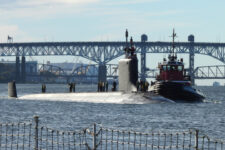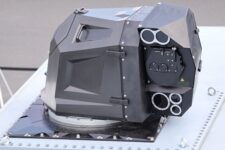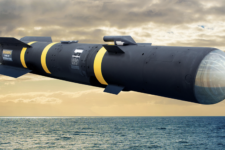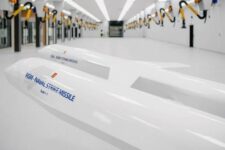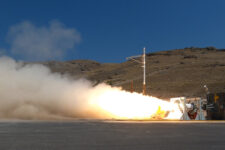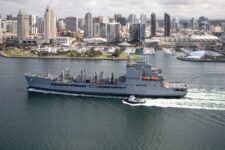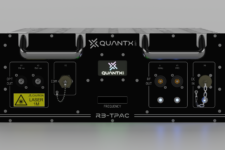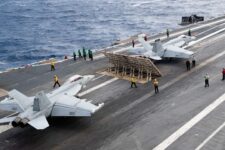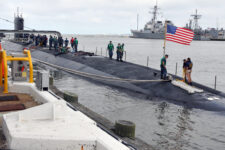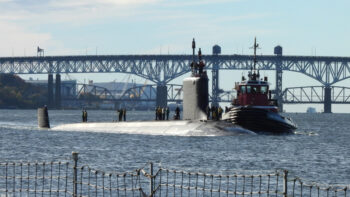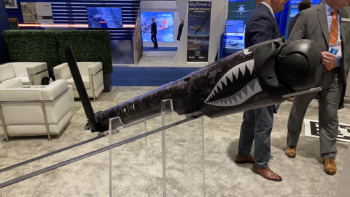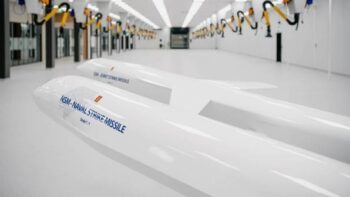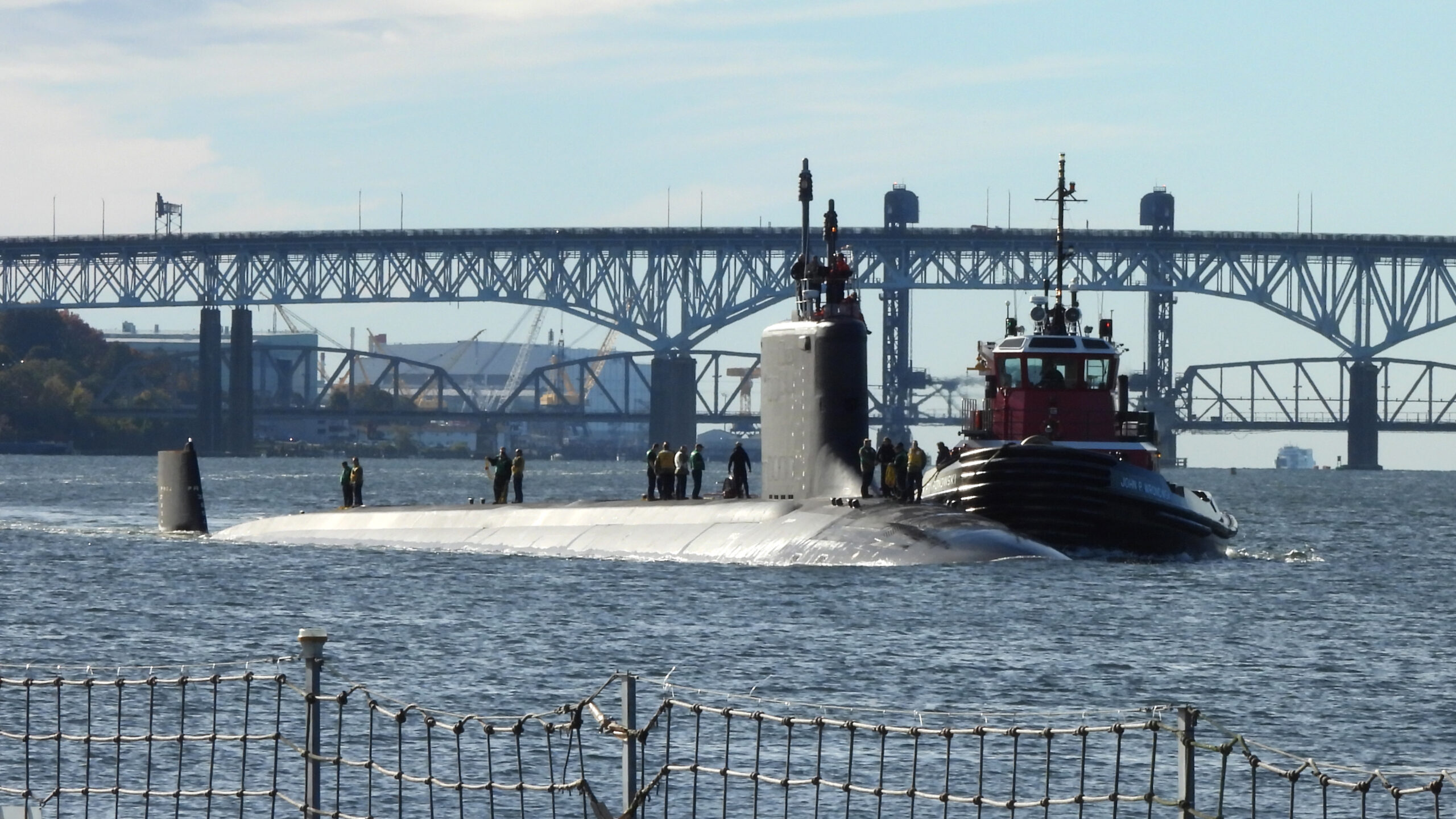
The Virginia-class USS Oregon (SSN 793) transits the Thames River after returning from routine operations in route to Naval Submarine Base New London in Groton, Conn., Oct. 14. (U.S. Navy photo by Petty Officer 2nd Class Wesley Towner)
WASHINGTON — The US Navy today unveiled an unusual “collaboration” with a private investment fund aimed at boosting America’s capacity to crank out modern submarines, in this case with an “ambitious” development of a shipyard in Alabama.
Specifically, the Navy said a private fund, the United Submarine Alliance Qualified Opportunity Fund LP, or USA Fund, purchased the 355-acre Alabama Shipyard outside Mobile “where it will prioritize U.S Navy maritime infrastructure investments and sustainment activities with the goal of developing an additional 75 [percent] of the site to support submarine production, workforce training, and industrial capacity.”
Shipbuilder Austal USA is investing in the fund and was today awarded a $152 million Pentagon contract “to support continued expansion” of the US sub industrial base. That money came from fiscal year 2024 National Sea-Based Deterrence funds.
“Today’s announcement underscores our commitment to finding innovative and creative solutions to accelerate submarine production and is emblematic of my Maritime Statecraft initiative that seeks to incentivize expansion of our national shipbuilding capacity by engaging new, forward-leaning stakeholders and leveraging the power of public and private investment,” Secretary of the Navy Carlos Del Toro said in a service press release.
Del Toro said the move “answers my call for investment into small-to-medium size shipyards, both active and dormant, that were previously the backbone of our Nation’s maritime power, and I look forward to continuing to work with industry on future initiatives to strengthen our maritime industrial base.”
RELATED: Is a new Navy shipyard realistic, or just a ‘tall order?’
“This Gulf Coast site, with its deep-water port, advanced facilities, and proximity to significant infrastructure and a skilled workforce, is ideally suited for expanding industrial base capacity,” the Navy’s release says. “Positioned next to Austal USA, an existing U.S. Navy shipbuilding contractor, the Alabama Shipyard will support the production of Columbia Class and Virginia Class submarine modules, as well as additive manufacturing and training.”
Speaking to reporters ahead of the announcement, Navy officials described a dramatic expansion of the shipyard, to include new facilities where workers for approximately 3,000 new jobs would work or train.
US officials have long warned that the US industrial base is not matched to the cadence of shipbuilding the Navy would like, especially now that the US has committed to providing Australia with at least three new Virginia-class subs as part of the AUKUS security arrangement. Today the Navy said sub production “must double” its current rate, “requiring an additional 3.5 to 4.5 million submarine module production and outfitting hours annually.”
That meant there was plenty of “demand signal’ to make submarine building look like an attractive market to “private capital,” according to Whitney Jones, director of the Navy’s submarine industrial base program.
“It is that we understand that the demand signal we’re all orienting towards right now, in one Columbia plus two Virginias per year, is a five-x increase to our industrial base,” she said. “And that in itself carries weight when it comes to a stable demand signal and [being a] national imperative.”
The introduction of a private investment fund, which by nature aims to maximize profit, into such a long-term and infrastructure-intensive national security project carries inherent “risks,” according to Matthew Sermon, executive director at the Navy’s program executive office for strategic submarines. But, he told reporters, the service evaluated those risks and inserted “contractual mechanisms and authorities that safeguard Navy and national security interests.”
“Think about things like foreign ownership, but also the right to have veto power over critical decisions or how the property is leveraged,” he said.
The Navy may be wading into relatively new financial waters, but Jones said that if it works as well as they hope, similar arrangements could follow.
“This is a really big swing,” she said. “It’s a big way to demonstrate what we see and in terms of the value in having private capital run alongside congressional dollars and sustaining something well beyond a president’s budget, right?
“This is the opportunity to do that and I don’t think this is a single thing, a single instance of working. I think this opens the door for this being a new way of us looking to do business in well into the future with partners who are mission-focused just like are.”
